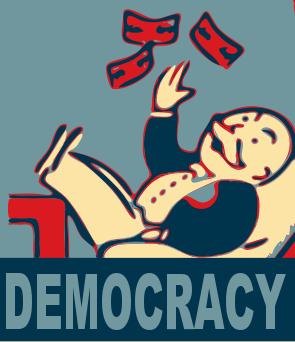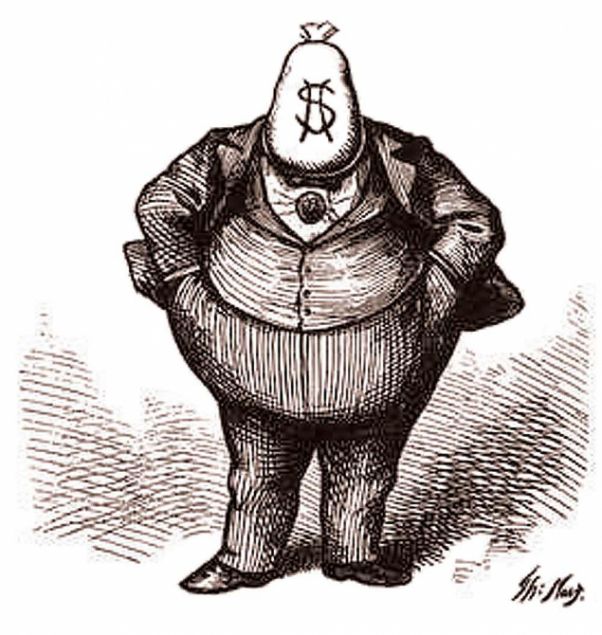 “The Court today rejects a century of history when it treats the distinction between corporate and individual campaign spending as an invidious novelty born of Austin v. Michigan Chamber of Commerce, 494 U. S. 652 (1990). Relying largely on individual dissenting opinions, the majority blazes through our precedents, overruling or disavowing a body of case law…The Court’s ruling threatens to undermine the integrity of elected institutions across the Nation. The path it has taken to reach its outcome will, I fear, do damage to this institution.
“The Court today rejects a century of history when it treats the distinction between corporate and individual campaign spending as an invidious novelty born of Austin v. Michigan Chamber of Commerce, 494 U. S. 652 (1990). Relying largely on individual dissenting opinions, the majority blazes through our precedents, overruling or disavowing a body of case law…The Court’s ruling threatens to undermine the integrity of elected institutions across the Nation. The path it has taken to reach its outcome will, I fear, do damage to this institution.“
Well, it was a nice republic while it lasted. In a 5-4 decision, the Supreme Court finally hands down its Citzens United verdict, and it is ugly. [Full Text] Basically, the distinction between corporations and individuals has been erased, and, by the already dubious proposition that money is speech, unlimited corporate expenditures in campaigns is now just good, old-fashioned government. Welcome to the new Lochner era, y’all.
By the way, this is a much, much bigger deal than Scott Brown or the effing Edwards baby. Not that you’d know that from watching the news right now.
Update: More reactions:
Fred Wertheimer, Democracy 21: “Today’s Supreme Court decision in the Citizens United case is a disaster for the American people and a dark day for the Supreme Court…With a stroke of the pen, five Justices wiped out a century of American history devoted to preventing corporate corruption of our democracy.“
Bob Edgar, Common Cause: “The Roberts Court today made a bad situation worse. This decision allows Wall Street to tap its vast corporate profits to drown out the voice of the public in our democracy. The path from here is clear: Congress must free itself from Wall Street’s grip so Main Street can finally get a fair shake.“
Robert Weissman, Public Citizen: “Shed a tear for our democracy…Money from Exxon, Goldman Sachs, Pfizer and the rest of the Fortune 500 is already corroding the policy making process in Washington, state capitals and city halls. Today, the Supreme Court tells these corporate giants that they have a constitutional right to trample our democracy.“
Sen. Russ Feingold (D-WI): “[T]his decision was a terrible mistake. Presented with a relatively narrow legal issue, the Supreme Court chose to roll back laws that have limited the role of corporate money in federal elections since Teddy Roosevelt was president. Ignoring important principles of judicial restraint and respect for precedent, the Court has given corporate money a breathtaking new role in federal campaigns. Just six years ago, the Court said that the prohibition on corporations and unions dipping into their treasuries to influence campaigns was ‘firmly embedded in our law.’ Yet this Court has just upended that prohibition, and a century’s worth of campaign finance law designed to stem corruption in government. The American people will pay dearly for this decision when, more than ever, their voices are drowned out by corporate spending in our federal elections.“
President Obama: “With its ruling today, the Supreme Court has given a green light to a new stampede of special interest money in our politics. It is a major victory for big oil, Wall Street banks, health insurance companies and the other powerful interests that marshal their power every day in Washington to drown out the voices of everyday Americans. This ruling gives the special interests and their lobbyists even more power in Washington–while undermining the influence of average Americans who make small contributions to support their preferred candidates. That’s why I am instructing my Administration to get to work immediately with Congress on this issue. We are going to talk with bipartisan Congressional leaders to develop a forceful response to this decision. The public interest requires nothing less.“
Slate‘s Dahlia Lithwick: “Even former Chief Justice William H. Rehnquist once warned that treating corporate spending as the First Amendment equivalent of individual free speech is ‘to confuse metaphor with reality.’ Today that metaphor won a very real victory at the Supreme Court. And as a consequence some very real corporations are feeling very, very good.“



